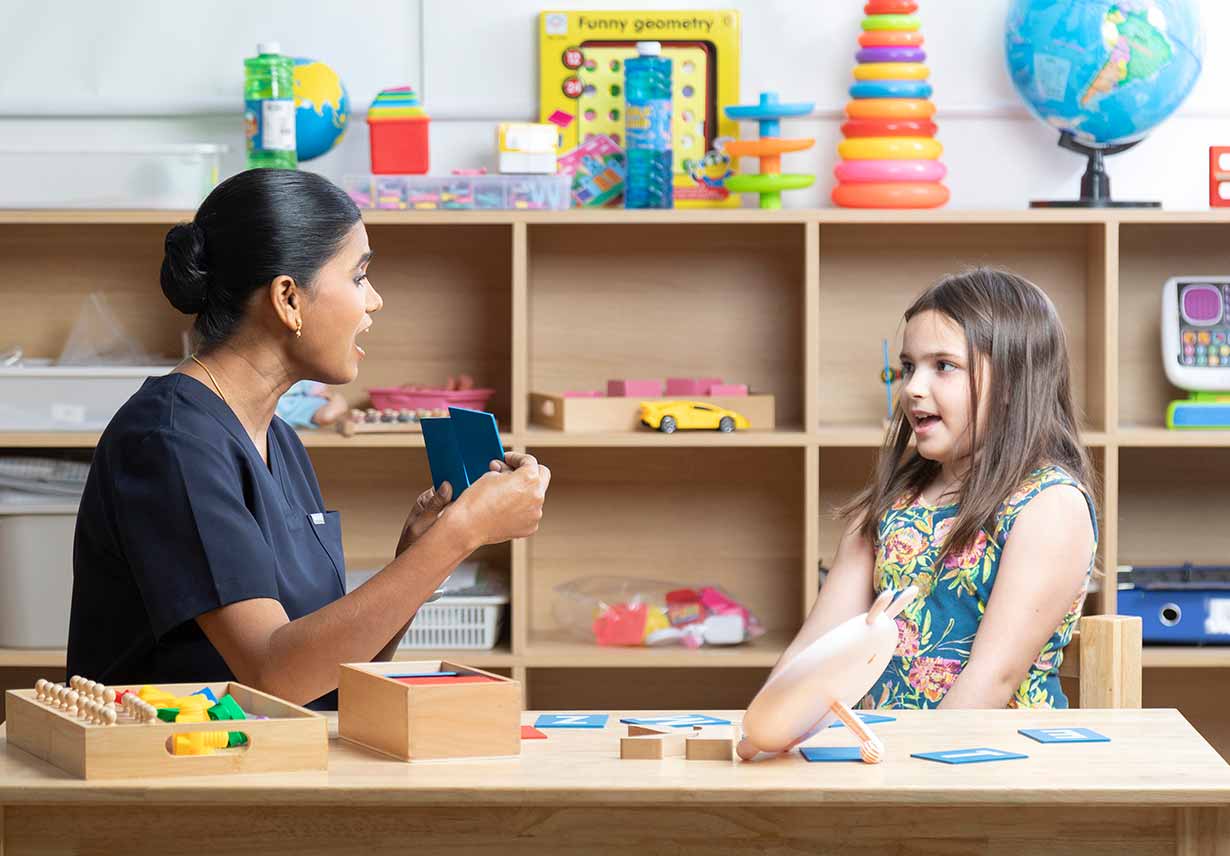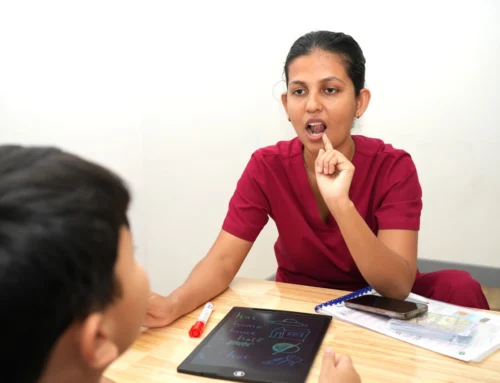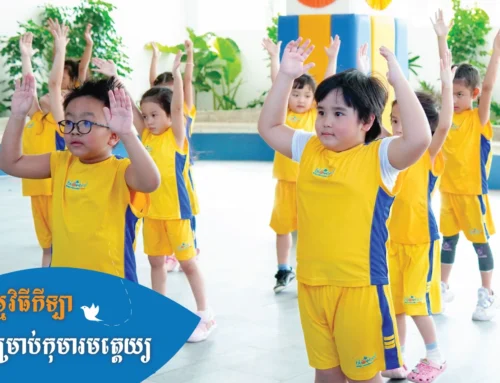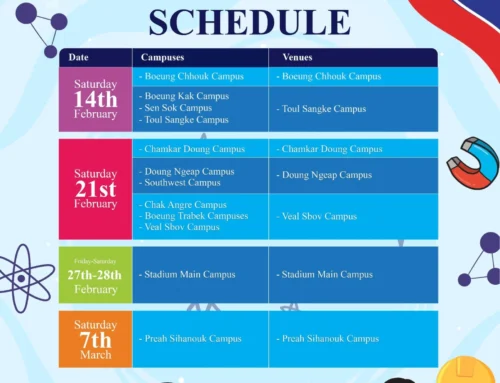Speech therapy plays a vital role in supporting academic success for students across international schools in Phnom Penh, Cambodia. In multilingual environments where English is often a second or third language, communication challenges can directly affect learning, confidence, and classroom participation. Through targeted speech and language support, therapists help children strengthen essential skills that lead to better reading, writing, social interaction, and overall academic achievement.
Understanding the Role of Speech Therapy in Education
Speech therapy focuses on developing communication skills, but its benefits extend far beyond talking or pronouncing words correctly. In an international school setting, speech therapists work closely with teachers and parents to identify how language impacts classroom performance.
Many students struggle with articulation, language comprehension, or social communication—issues that can lead to frustration, withdrawal, or even behavioral challenges. A child who has difficulty understanding questions, organizing thoughts, or expressing ideas may fall behind academically despite strong cognitive abilities.
At institutions such as OrbRom Center in Phnom Penh, trained speech-language pathologists assess and address these barriers through individualized plans. These programs improve not only verbal communication but also literacy, executive functioning, and self-confidence—key pillars for academic success.
👉 Learn more about speech therapy in Phnom Penh.
How Speech Therapy Builds the Foundation for Learning
1. Enhancing Language Comprehension
Children learn through listening. When a student struggles to follow classroom directions, understand lessons, or process new vocabulary, learning becomes much harder. Speech therapy strengthens receptive language—the ability to understand spoken words, grammar, and sentence structures. This skill is critical in English-medium schools where lessons are fast-paced and linguistically complex.
Therapists often use evidence-based activities such as story retelling, sequencing games, and interactive questioning to help children connect meaning with words. Over time, these strategies translate into improved reading comprehension and academic confidence.
To understand more about how speech therapy helps with understanding and expression, visit What Is Speech Therapy?.
2. Improving Articulation and Pronunciation
In international classrooms, clear pronunciation supports effective communication and social integration. Students who mispronounce sounds or have unclear speech may hesitate to participate or read aloud. This can affect their engagement and self-esteem.
Speech therapists guide students through structured articulation exercises, helping them produce sounds correctly and fluently. By practicing phonemic awareness and oral motor control, children not only speak more clearly but also develop stronger reading and spelling skills, which are linked to academic success in English subjects.
Learn how articulation therapy helps children in Cambodia at Speech Therapy Services Phnom Penh.
3. Strengthening Vocabulary and Expressive Language
Vocabulary growth is the foundation of literacy. Through speech therapy, students expand their ability to use descriptive words, connect ideas, and express opinions—skills crucial for essay writing, class discussions, and creative projects.
Therapists at OrbRom Center use play-based and functional learning approaches, such as storytelling, categorizing activities, and role-play, to make language development fun and relevant. When expressive language improves, students can better demonstrate understanding and participate more confidently in collaborative learning.
4. Supporting Literacy Development
Speech therapy directly supports phonological awareness—the ability to recognize and manipulate the sounds of language. This is a key predictor of reading and spelling success. In Cambodia’s international schools, where early literacy skills are often taught in English, students who receive speech therapy develop stronger sound-symbol relationships, improving decoding and comprehension.
For example, a child who struggles with blending sounds like c-a-t may also find reading new words difficult. A speech therapist can intervene early, teaching strategies that make reading enjoyable rather than stressful.
Read more about this in Speech Therapy Benefits for School-Aged Children in Cambodia.
Social and Emotional Growth Through Communication
Academic performance is deeply connected to social and emotional wellbeing. Children who can express themselves effectively are more likely to build friendships, seek help from teachers, and handle classroom challenges.
Boosting Confidence and Classroom Participation
Speech therapy empowers students to share ideas, ask questions, and engage in group work without fear of misunderstanding. Improved communication reduces anxiety and promotes a sense of belonging—especially for students adjusting to international or multicultural environments.
Therapists also teach social communication skills, such as turn-taking, tone of voice, and active listening—essential tools for collaboration and leadership.
Learn how communication therapy boosts student confidence at How Speech Therapy Boosts Confidence in Phnom Penh Students.
Collaboration Between Schools and Speech Therapists
In international schools, effective support requires teamwork. Speech therapists collaborate closely with teachers, learning support staff, and parents to create consistent strategies that reinforce communication goals in every environment.
Integrating Therapy Into the Classroom
Rather than working in isolation, speech therapists often observe classroom dynamics, provide teacher training, and design inclusive lesson strategies. This collaborative approach ensures that language support is woven into daily instruction—benefiting not just students in therapy, but the entire classroom community.
For example, a therapist might recommend visual aids for vocabulary lessons or simplified instructions for students who process information more slowly. These inclusive practices create more equitable classrooms for all learners.
To see how comprehensive educational support is structured, explore OrbRom’s Preschool Program and Special Needs Intensive Intervention services.
The Cambodian Context: Speech Therapy in International Schools
In Cambodia, international schools are growing rapidly, welcoming students from diverse linguistic and cultural backgrounds. However, speech and language challenges are often overlooked or misunderstood. Parents may assume their child is “just shy” or “taking time to learn English,” when in fact early speech therapy could make a major difference.
Centers like OrbRom Center have become essential partners for schools across Phnom Penh, providing on-campus assessments, teacher consultations, and therapy sessions designed to align with each school’s curriculum.
Families can also access speech therapy assessments to better understand their child’s communication profile before starting formal interventions.
By working together, schools and therapy centers can help every student—whether multilingual, neurodiverse, or simply needing extra support—reach their full academic potential.
How Parents and Teachers Can Support Communication at Home and School
-
Model clear speech and active listening during daily interactions.
-
Read together and discuss stories to build vocabulary and comprehension.
-
Encourage questions and praise effort, not just accuracy.
-
Collaborate with therapists to continue exercises at home.
-
Use visual schedules or cues to support understanding for students who benefit from structure.
Simple, consistent strategies like these make speech therapy more effective and help children generalize their communication skills beyond therapy sessions.
For additional practical ideas, explore Top 10 Speech Therapy Exercises You Can Try at Home.
Conclusion: Building Future Success Through Speech Therapy
Speech therapy is more than correcting sounds—it’s about unlocking a child’s ability to learn, connect, and thrive. In international schools in Phnom Penh and across Cambodia, these services bridge the gap between communication and education, giving every student an equal opportunity to succeed.
Whether your child is learning to pronounce new sounds, build vocabulary, or gain confidence in public speaking, early and consistent support can make a lifelong difference. To explore professional services tailored for your child’s educational journey, visit OrbRom Center’s Speech Therapy Program.







